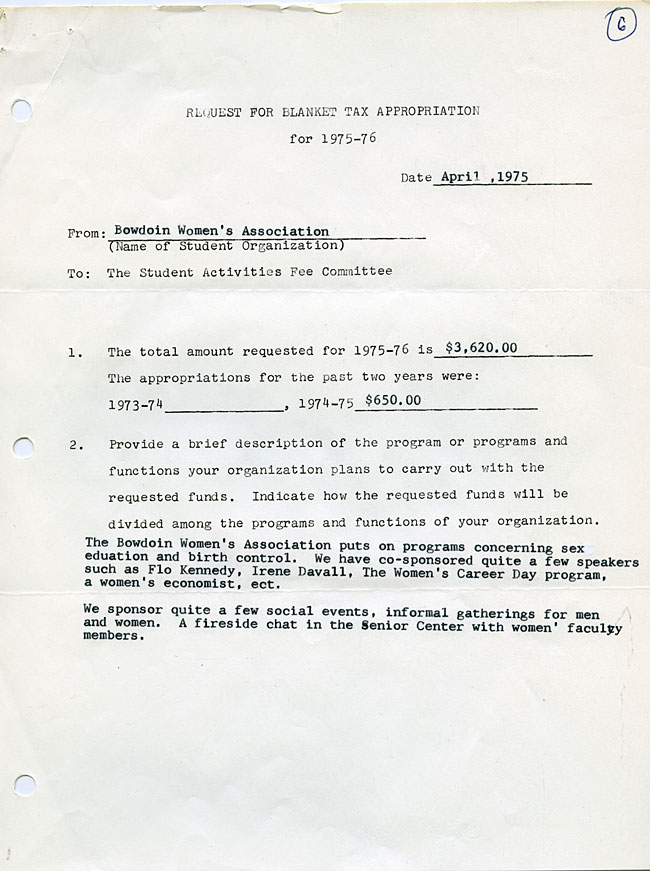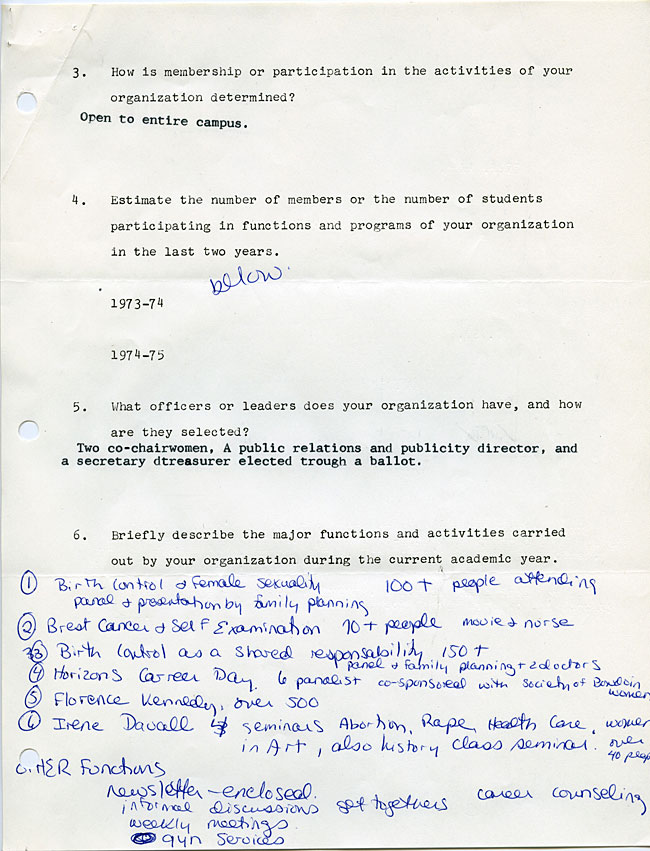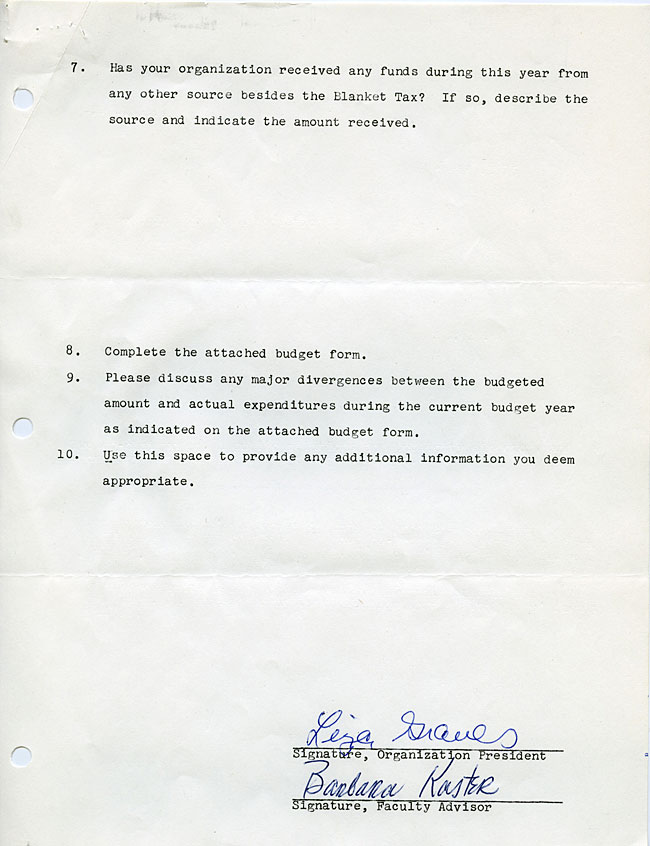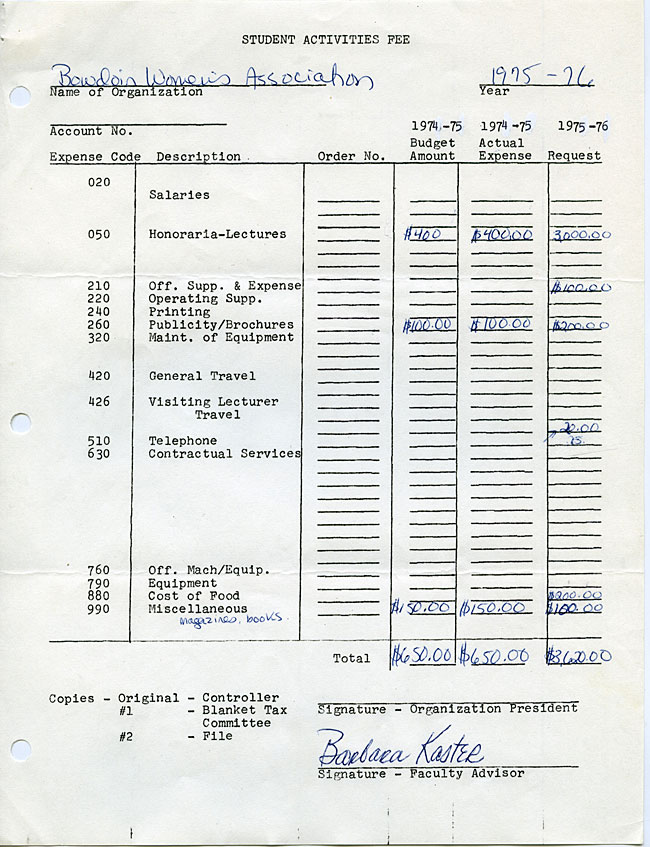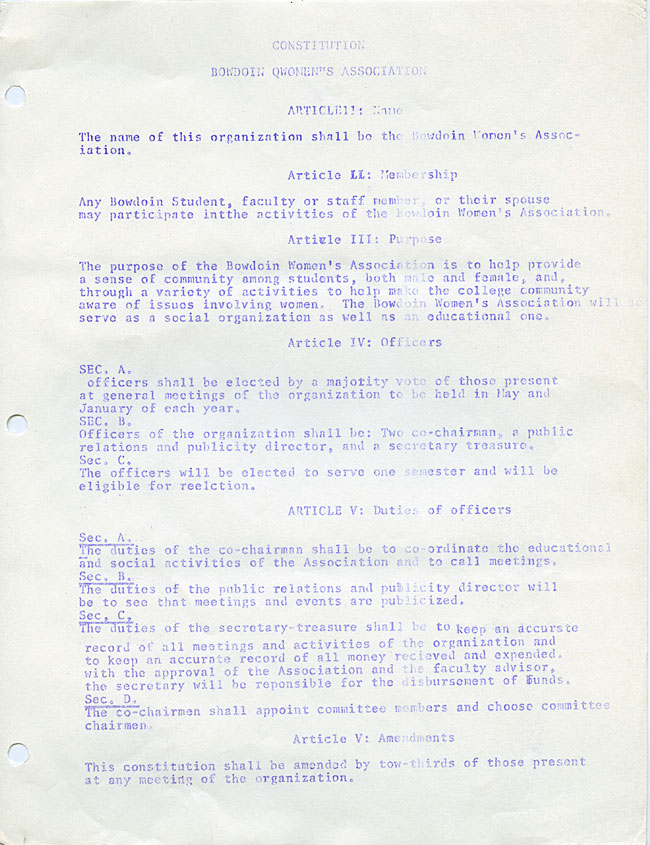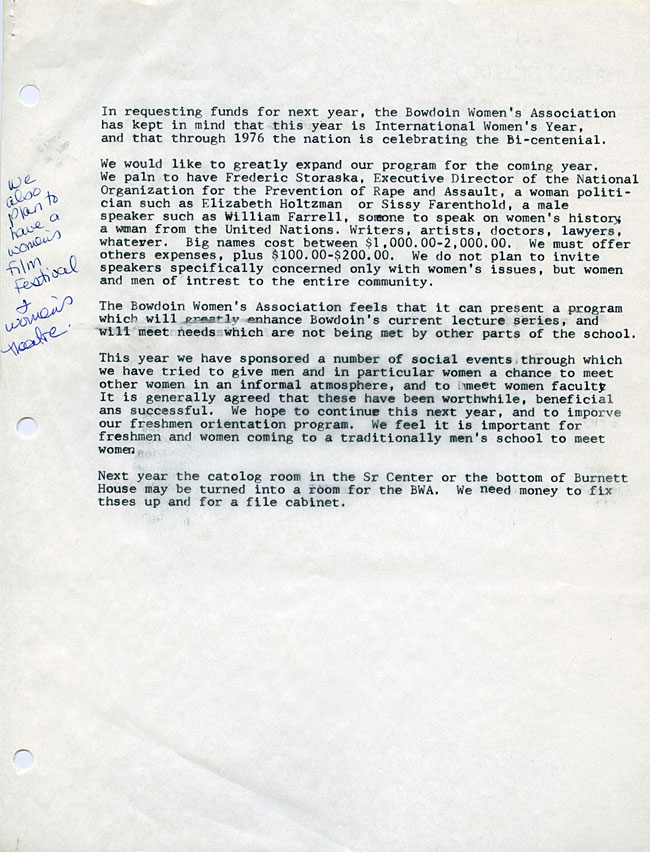“Co-education remained controversial and while less hostile with the senior class gone, there was still an atmosphere that we were guests at a male college.”
– Patricia Geller ‘75
The Bowdoin Women’s Association (BWA), a student led campus organization, began informally in the fall of 1972. Patricia “Barney” Geller ‘75 and Liza Graves ‘76, two of the clubs founding members, began organizing meetings before petitioning the student government for funding as an official campus organization. BWA was intended to help build community among male and female students while bringing to the forefront women’s issues that had not yet been addressed by the college. The organization tackled institutional and social issues, advocating the need for more female faculty and addressing what Patricia Geller called a “concern that some of the new students were taking what we [Geller and Graves] saw a(s) subservient roles in some of the frats and were not allowed to be full members.”
BWA’s constitution [DocumentAG, 40] describes the group as both a social and educational organization. Funding was used to sponsor social events that allowed women to gather informally, creating a space where women could articulate some of the issues they encountered at a traditionally male school. Funding was also used to sponsor non-academic educational programs on sex education and birth control. The second initiative was of considerable importance given that the College was largely unprepared for the arrival of women on campus, particularly in the department of women’s health. Geller recalls both a rule at the infirmary requiring women to wear a bra in order to be seen and the lack of a gynecologist available to women on campus.
BWA was also instrumental in educating students and raising awareness about issues of sexual harassment and abuse. Plans outlined in BWA’s 1975 budget proposal seek to bring speakers to campus in the fall of 1976 including the Executive Director of the National Organization for the Prevention of Rape and Assault. Other proposed speakers include women politicians, speakers on women’s history, and artists and writers on issues pertinent to women. Although many of the events hosted by BWA were focused on women, they were open to men as well.
BWA’s presence on campus during the early years of coeducation was important both in creating a space where women could meet and discuss the issues they encountered on a daily basis and in educating students, men and women alike, about issues that were likely not addressed prior to the arrival of women on campus.
